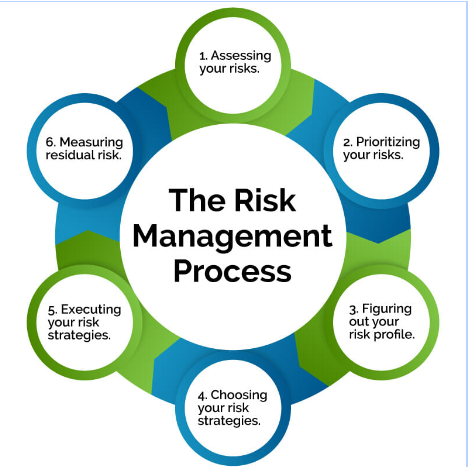
Direct Funding Now – Ways to Help Mitigate Financial Risk
Your money must be safeguarded against unforeseen ups and downs in the world of finance. This is the reason we are here to share five useful tips that anyone can use. These strategies will help you manage risk, whether you are a financial novice or a seasoned pro. From wisely distributing your investments to creating an emergency fund, we will cover it all. It is easier than you might think, so don’t hesitate to learn how to keep your finances safe and secure.
Strategy 1: Diversify Your Investments
Think of your money as seeds in a garden. If you plant them all in one place, a single storm could wipe them out. By spreading out your investments, you can minimize your risk by ensuring that even if one area suffers, the others will continue to grow.
- Spread the Risk: Instead of putting all your money into one thing, e.g., stocks, diversify by investing in distinct types of assets, such as stocks, bonds, and real estate. Direct Funding Now believes that this way, if one investment goes down, the others can help balance things out.
- Lessen the Rollercoaster: Different investments don’t always move in the same direction. By diversifying, you can soften the ups and downs in your overall investment returns.
- Make it Personal: Customize your diversification strategy to match your comfort with risk, your financial goals, and when you’ll need your money.
- Be on the Lookout: Regularly check on your diversified investments to make sure they still match your goals and adjust as needed.
- Seek Expert Advice: Consider talking to a financial advisor for help creating a diversification plan that suits you.
Diversifying your investments isn’t just about safety; it’s a smart way to help your money grow steadily over time.

Strategy 2: Emergency Fund Creation
Unpleasant surprises abound in life. That’s why creating an emergency fund is like having a financial safety net. With peace of mind, when life throws you a curveball, it serves as your cushion for unforeseen costs.
- Start Small: Begin by setting aside a portion of your income regularly, even if it’s a small amount. Over time, these savings can add up.
- Set a Goal: Aim to save at least three to six months’ worth of living expenses. This provides a solid buffer for most emergencies.
- Separate Account: Besides that, keep your emergency fund in a different account from your regular spending money. This makes it less tempting to dip into for non-emergencies.
- Consistency is Key: Make saving for your emergency fund a habit. Schedule payments from your checking account to your emergency fund so you won’t forget.
- Use Only for Emergencies: Reserve these funds exclusively for genuine emergencies, like medical bills, car repairs, or unexpected job loss.
An emergency fund will always be by your side, ready to save the day when you need it most.
Strategy 3: Risk Assessment and Tolerance
Think of investing as choosing a path for a hike. You need to know the trail, your abilities, and how much adventure you’re up for. This strategy helps you match your investments with your comfort level.
- What’s Risk? Risk means the chance that you might not make as much money as you hoped, or you could even lose some. It’s the adventure part of investing.
- Know Yourself: Additionally, figure out how much adventure you want. Are you okay with some ups and downs, or do you prefer a smooth ride? Your personality and goals matter here.
- Mix It Up: Based on your adventure level, mix your investments. More adventure might mean more stocks, while less adventure might mean more bonds.
- Stay on Track: According to Direct Funding Now, life changes, and so can your adventure preference. Watch your investments carefully and make necessary adjustments.
If you are aware of your level of investment and take the right path, your financial journey can be much more enjoyable and successful.
Strategy 4: Continuous Learning and Research
To navigate safely, you need to learn to adapt to unpredictable circumstances. This strategy is all about staying informed to make wise financial decisions.
- Stay Curious: Approach finances with a curious mind. The more you learn, the better equipped you are to make smart choices.
- Read Regularly: Dive into books, articles, and trustworthy news sources. Each piece of knowledge adds to your financial toolkit.
- Online Courses: Explore online courses and webinars. They offer structured learning to help you expand your financial know-how.
- Listen to Experts: Follow successful investors and financial experts. Their experiences can provide valuable insights and tips.
- Track Your Progress: Last but not least, keep a record of what you learn and how it affects your decisions. This helps you fine-tune your financial strategies over time.
Continuous learning and research keep your financial journey on track. It’s the roadmap to a more secure financial future.
Strategy 5: Professional Guidance
To navigate safely and reach your destination, having an experienced guide is invaluable. Seeking professional guidance means having a financial expert assist you on your journey.
- Expertise Matters: Financial advisors are pros who know the money game inside and out. They provide guidance that helps you make smart decisions.
- Personalized Plans: These experts create financial plans that fit your unique goals and situations, whether it’s buying a house, retiring, or managing debt.
- Risk Management: Professionals help you understand and handle risk, making sure your investments match your comfort level and financial objectives.
- Market Insights: Advisors stay updated on market trends, offering valuable advice to adjust your strategies based on current economic conditions.
- A Trusted Partner: Developing a relationship with a financial advisor means having ongoing support and making adjustments as your life and goals change.
Think of professional guidance as having a co-pilot who knows the best routes to your financial destinations, making your journey smoother and more successful.
Your Path to Success
In the world of money, success is all about being smart and adaptable. These five strategies are your keys to financial prosperity. Diversify your investments, build an emergency fund, match risk with your goals, keep learning, and think about professional advice. With these tools, your financial journey will be smoother and more secure as concluded by Direct Funding Now. Keep in mind that it is a lifetime adventure, but you have what it takes to make it a success. So, get going and set out on your journey to ensure a better financial future for yourself.







